This transcript has been edited to improve readability
Alice is one of those brilliant women I bumped into at church and bonded with over music and many a night out. 10 years on I’ve seen her take on many challenges with her career and creativity.
In this episode Alice opens up about a difficult year of unemployment. She’d been ace-ing it in a dream job and worked at a director level in an arts company. She felt the time was right to move on but things didn’t quite turn out as expected.
Especially when you find yourself cleaning up toenail clippings for cash in Didsbury. Alice talks from the rough edge of experience and finding a quiet, steely, day by day courage.
Rachael 0:57
I mean, obviously you are one of my oldest, closest friends, we can riff on anything.
Alice Birdwood 1:13
I don't know how interesting other people will find it!
Rachael 1:15
Well, I think they'd be fascinated personally. Do you want to do the how we met?
Alice Birdwood 1:26
Yeah. So we met through my sister, because you both went to the same church. I think we met at a gig. This mutual friend, Mark. We first bonded over music in the venue toilets. Yeah.
It was when I moved to Manchester, nearly 12 years ago. So I think it was soon after that. Must have been 11 years we've known each other. Wow. Yeah.
Rachael 2:03
A lot has happened and a lot of changes in a decade.
Alice Birdwood 2:07
Masses. Yeah. The person I was 12 years ago. 10 years ago, even five years ago.
Rachael 7:12
That's great. So one of the things I ask everyone when we're planning the interview is, what would be the specific thing that you want to talk about when you think about courage? Because it's such an open ended topic. And you gave me… I didn't know who said this quote.. ‘Courage doesn't always roar. Sometimes courage is the little voice at the end of the day that says, I'll try again tomorrow.’ Can you tell me why you chose that quote?
Alice Birdwood 8:02
Oh, I just when I heard that, for the first time a few years ago, my whole body just kind of changed its posture. I relaxed into where I was currently at. And I think it's because when you think about the word courage, it feels like a very big, grandiose. It's having the courage to speak to 10,000 people, it's the courage to walk across a tightrope. And actually, I realised that, for me, courage was just picking myself up and persevering. And I think that's the first time I realised this sort of partnership between failure and courage sort of go hand in hand. There's a lot of shame that quote broke off because, ‘I will try again, tomorrow’ is something that I live by today. Even if something has been shockingly awful, I feel like I've failed and I've messed everything up. But I will try again tomorrow. And that feels like a really healthy approach to if at first you don't succeed you know, dust yourself off. I just, I love it. And every day, our lives are full of little bits of courage every day. I will get out of bed. I will have that shower. I am good enough to make that comment. It's the little bits of courage that life is defined by I suppose every day.
Rachael 9:39
I think that leads me on to the next question, what are the common myths around courage? Do you think it is around what the word means?
Alice Birdwood 9:47
I think in the last few years, definitely around conversations around mental health. The fact that people are willing to be more open about the daily struggle of being a human being. I feel like that's breaking now. But I think to call someone courageous is, you know, books are filled with this courageous hero. And even in that quote, courage doesn't always roar. So it's like, courage as a lion. It's like this big, magnificent beast. Well, actually, the courageous one is probably the gazelle that spotted the lion. And then they darted off into the sunset. So yeah, I think the concept is that courageous is perhaps quite a male term. The big heroes that want to achieve great things. But it's really great to see us talk about living courageously, like Brené Brown. We’ve not had the right use of the word perhaps.
Rachael 10:53
Right! Would you have a different word? Or is that a hard one to pin down?
Alice Birdwood 11:05
Maybe something like heroic. But then I tell my sister, she's a hero for bringing up three children.
Rachael 11:13
She is yeah. What are some of the specific things about courage that you care about?
Alice Birdwood 11:49
I really want to encourage others to be courageous. I've always tried to, if I've ever been in sort of leadership position at work. I've always tried to encourage people to be courageous. And again, it's like the big use of the word. I used to line manage graduates, about 21 or 22 years old. I used to tell all of them to go travelling, I said, ‘just quit this job and go travelling, have some courage, and you know, don't settle for the norm and go.’ I'm really passionate about people not letting the shame of failure stop them from being courageous. It's this real link between failure and trying again. Having a setback, and that nobody sails through life. I saw something on a wall, that I quote back to people all the time, and it's it says, be a have a go hero. And I just love that as a reminder, all you’ve got to do just try and have a go. And everyone fails at things all the time. I think the courage is saying that doesn't define me, I'm not going to set myself in shame. I'm going to try something else and have another go.
Rachael 13:14
Sometimes it's not actually the experience of having a go. But it is the fear of what will people think if it doesn't work out? Is that something that's the bigger fear around people's reactions? Or those kind of judgments?
Alice Birdwood 13:36
Yeah. And also, this is my plan. Like I planned it to be this way, how has it not worked? What's going to happen instead, if this job or this relationship doesn't work, where am I? Where am I left? What am I going to do? I don't know what…
Rachael 14:08
…start recording podcasts?!
Alice Birdwood 14:11
We're trained to believe there's a plan A. And I just don't think it's… I just don't think it's true. I just don't think life is that linear or that straightforward. Definitely not.
Rachael 14:27
How has your own courage been tested? Massively open ended question…
Alice Birdwood 14:42
I think most of my courage stories come out of work. I've never considered myself to be courageous, to be honest. I think if I did something it would be because I had a good safety net. You know, I had enough savings or if it went wrong, you know, I would make sure that things were going to work out. All the things you mitigate against. If you go for something you think, ‘Well, if that doesn't work, I could just do that.’ Always had a Plan B ready, waiting.
I mean, the big one that springs to mind is quitting probably the job I loved the most at Curious Minds. And I adored that job. And it was like, You know what, I describe it back to people now. It's like, ‘oh, you're working with children, young people, in the creative world with people that you love.’ And yeah, I worked there for five years, and I was commuting two hours each day. I just really felt like it was time to move on. And I decided to quit without another job to go to. Now, that sounds courageous, in my head, it was, ‘oh, but you've saved enough money to be off for three months. You're really tired, you need a break. It's like a sabbatical.’ So it didn't feel courageous. It felt safe, it felt like a good decision. And really, really unglamorously, you know, that happened. Three months passed, six months, nine months passed. Are you living on benefits? Anything? What is my purpose in life? What were you doing? Why? The courage was, again, getting up, apply for the job and say, ‘This is gonna be okay, this is gonna work out. I know, you're cool. I know that. You don't know what to do next. But you just got to live your life in a way that is positive, you know, you still got things to be grateful for.’
So for me, the courage was just, it’s going to be okay. And even though I suffered some really low days… I was like, no, just because I can't see it coming, doesn't mean it's not going to happen. Just because I written 50 job application forms, and I've had five unsuccessful interviews does not mean it's not going to happen. Those failures don't define what's going to happen in the future. And so I don't look at the courage as walking away from a job, although that makes a big headline story. My courage was being off for a year still saying, ‘it’s gonna be okay.’ And it was.
Rachael 17:39
Well, that was a whole different type of courage, wasn't it? Yes. Do you think there's different types of courage that you need to activate? Because there’s a type of courage you need when there's zero pressure, but also zero is happening…
Alice Birdwood 18:06
So I think there is. I don't know if this is the right way to phrase it. But if you've got passive courage, it’s encouraging yourself from within, when there's nothing outside of it, to suggest otherwise. And that feels like an act of courage, which is absolutely bricking it, walking into work, knowing that you have to have a difficult conversation with a group of very ruthless capitalists, alpha males, when you're only the only woman. You have to say, ‘I don't miss this.’ I do think there's lots of nuance. Again, there is the courage of standing up in front of 5000 people and doing a talk.
Rachael 18:52
Yeah, totally. So I mean, what happened after the unemployment period. That was how long in total?
Alice Birdwood 19:04
I was unemployed, probably, from August to June the following year.
Rachael 24:31
Things have definitely moved on from that. It's so good. So maybe we've already touched on this, but one of the things I wanted to really draw out of these conversations was celebrating second chances and starting over. Have you got any particular stories around transition or starting over?
Alice Birdwood 24:58
I've got absolutely tons! So we fast forward. And you know, this story is very much a parallel to your story. I went into a kind of selfless project that I was really passionate about. Working with people that I thought were part of my tribe, you know, I pretty much was willing to volunteer for it. I was like, ‘I'll lay everything down, you know, I lay down the fact that I've been a director, the salary down, everything, I'm just really passionate about it.’ This one idea. And I really wanted to make it work. I'm sure that your listeners and you will understand that when you see something, you're like, ah, that confirms everything in life that I've ever thought I could do: this. And this, this is a job for life. And I can do this forever. It's a passion project, it doesn't matter about anything else, it's just going to be great. It's amazing. I'm going to be happy forever in this job. Nothing in life is like that.
I got there. And it was a massive disappointment in a way that I didn't see coming at all. I felt like my wings had been clipped, I felt very invisible. I was micromanaged to a point where all of my creativity just kind of froze and closed up. I felt in a really vulnerable spot I’d just come from a corporate machine. And I thought I was in a safe place. I suppose I was on a personal level, but just professionally. I just felt like I hadn't called it properly. I hadn't identified it properly. I’d been so… it's an exit. But also it touches on so many things I'm passionate about. And looking back, I probably should have interrogated a bit more about what the nature of the job was, and what I’d be doing for free. And how would I feel about doing something that I wasn't renumerated for? Obviously you feel undervalued, you hold a grudge for a little bit.
I felt so sad that I had my dream that I thought would make me happy forever, had failed. And part of it was the willingness to let go of that dream. Part of it was about courage, part of it the process. Part of that process was letting go of that plan. Because I thought it played into everything my life was. And I thought, ‘Yes, this ticks every box. This is why I suffered through all of those jobs to this point.’ And it wasn't true. It didn't happen. It didn't line up. And letting go of that was really hard and actually transitioning out of it was okay. Because I was really conscious of maintaining relationships with the people. I’m still friends now. I needed a new plan. For me, there was real grief - I made all these big statements. And I felt embarrassed. I’d made all these big statements about what I was going to do and how I was going to do it. And it was going to be 10 years of my life. And suddenly a year had passed. And I thought ‘oh no, this isn't what I am going to do after all.’
We talked about transition. For me, I think everything we do is probably about transition. I think everyone's in a perpetual state of transition. But what I had to do was go, ‘right, what do I love what I'm passionate about? I need to get paid.’ What am I good at? What annoys me when I don't get to do it? And, again, the best story that you could hope for - I applied for a job. Didn't get the job. I came off the phone to you. And I woke up the next morning and I said ‘no, I'm not having it. It's gonna be okay. It's gonna be okay. I don't know how but it's gonna be okay.’ And I the CEO who interviewed me, rang me a few days later and said, ‘I'm really sorry, we can't give you that job. But I've got another one for you. I think it's perfect for you.’ And that was the job where I went
Rachael 29:48
Amazing. I remember it.
Alice Birdwood 30:03
Yeah. And suddenly it's not been hard won. It's not perfect, but I really care about it. I've got this huge platform, you know, I project manage leadership programmes. I absolutely love it. And it's very, very disorganised. I have to work from home and travel to London, which is really irritating at times. But I love it. And and it's a place of peace. I’ve not been catapulted into this… and then she was the CEO of the Arts Council and lived happily ever after.
Rachael 30:41
No
Alice Birdwood 30:43
But it was the letting go of that plan. And all those statements I'd made about a job for life. That was the bit of transition that I had to come to before I was ready to let go. Let's try something and be a bit more practical about it.
Rachael 31:00
How do you do that? Because I think that's something I've had to really work through. And it is one of the hardest things - letting go of a dream. Yeah. Because dreams take many years to build momentum. Before you know it you've entered the wardrobe and Narnia was fully fleshed out.
Alice Birdwood 31:26
Someone very wise, and I'm probably quoting an Instagram meme here, ‘Unhappiness is the gap between reality and your expectation.’ And it took lived experience, counselling, support from friends and just gratefulness. What I currently have made me realise that nothing is certain and dreams are lovely. I mean, look at covid 19, look at cancer, death and divorce. People are blindsided by things all the time. I'd learned to dream of things beyond, rather than being thankful for what I actually have. I'm saying all this, I still have days, I just grumble along. You know, I'm still trying to experience in my personal life… we have these dreams still when we turn 40. Dreams to be married and have children. Does my happiness level die on those dreams happening? And if they do, then you're kind of in a bit of a tight spot. I've got a picture on my wall that says, ‘you can be happy now, if you like.’ And it's just such a brilliant reminder to say, why aren't you happy today?
Rachael 32:53
And it's hard, isn't it?
Alice Birdwood 33:00
Sometimes, yeah. And that's where the courage comes in. That's where that's what I think, really unglamorous… Living courageously is just that. It's choosing to not live in the dream world. Choosing to have dreams, but to hold them lightly. And just be thankful for what I have today.
Rachael 33:18
Yeah. Gratitude is a bit of an obvious one. I've definitely noticed and it's been helpful to be happier.
Alice Birdwood 33:28
And we've all started and stopped gratitude journals
Rachael 38:32
What would you say are some of the ways or tools that people can use to increase their courage? Do you think it's even a practice?
Alice Birdwood 38:54
I think you have to be intentional. I think gratefulness really helps. And just giving yourself a break. Like I will try again tomorrow is, for me, part of that quote. Break off the shame. Don't worry about it. Tomorrow's a new day. I feel like you can if you can remind yourself of that. And it's easy to say. But I feel like that's a great way to end and begin a day. I don't think it comes naturally. I mean, you're speaking to someone that wouldn't necessarily consider myself to be courageous until I read your questions and thought, ‘Oh, of course I have some things to answer.’
Rachael 39:48
Definitely. I've just seen you walk through and lived through an awful lot and you haven't shrunk back. There's been some massive challenges and you haven't gone down the safer route of shrinking back for a more ordinary life. It's definitely not been an easy ride. Yeah, I do think you are courageous for sure. I'm going to end with some quick fire questions. So, first question, why be brave?
Alice Birdwood 40:36
It might just work out, and even if it doesn't
Rachael 40:42
What scares you?
Alice Birdwood 40:48
I feel like I'm unravelling everything I've just said, but rejection really. I'm really afraid of rejection. I’m working on it.
Rachael 40:56
What is sexy about courage?
Alice Birdwood 41:00
Oh, makes a really interesting person. I just think you've got great stories to tell.
Rachael 41:05
Great. We love great failure stories, they are good, too. Yes. What does courage demand?
Alice Birdwood 41:11
Perseverance and failure.
Rachael 41:15
Who's someone courageous that you admire?
Alice Birdwood 41:20
Oh, I'm really bad at these kinds of people that you admire questions… you! Oh, yeah. I've got some great friends that are very courageous and I admire
Rachael 41:34
What is courage?
Alice Birdwood 41:40
It's the quiet voice that says I'll try again tomorrow.
Rachael 41:44
What are the benefits of courage?
Alice Birdwood 41:48
It stops you from living an ordinary life.
Rachael 41:53
A time you surprised yourself with courage?
Alice Birdwood 41:59
I surprised myself? I stood up to my boss when I wasn't planning to.
Rachael 42:04
Was that one of the alphas?
Alice Birdwood 42:07
Yeah hadn't planned for it. But I just couldn't hold it anymore.
Rachael 42:10
We've popped. It just popped - back off. Courage and confidence. Is it the same thing?
Alice Birdwood 42:16
No. I think you can be courageous and terrified.
Rachael 42:21
So true. A time you wish you'd been courageous?
Alice Birdwood 42:26
Oh, all the time. I wish I'd asked that boy out. I wish I'd bought that top.
Rachael 42:42
Especially wacky tops. Absolutely.
Alice Birdwood 42:55
I wish I'd said no to that last drink and gone home.
Rachael 43:01
What did the day to day work look like?
Alice Birdwood 43:24
Well, I left with really high expectations that I was going to enjoy a really chilled out sabbatical in inverted commas. Yeah, but quite quickly after about two or three weeks, I started to panic. And it turns out that I'm not great if I haven't got a structured day to day job. Even if I'm applying for jobs, I still felt very anxious. And this was quite early on in the year that I was unemployed. And so a friend of mine hooked me up with her cleaning lady. And she was like, ‘look, it's just a bit pocket money. It's minimum wage. It gets you out the house. It's like going to the gym’ and I was like great. Do you know what? I'm not too proud to be a cleaner. And you know what, actually, I really enjoyed it.
Rachael 44:13
So what was so what the actual company and what were you doing?
Alice Birdwood 44:20
It was BB's cleaners. Babs, she took me to her local cleans, to help her out. Yeah. It was when I was cleaning… Actually how people live, even if they're quite posh - don't live that cleanly. Because I’m in this house. And she was like, ‘right, it's two hours, you might only have time to do the do the front room.’ And I was looking at it and I was like, goodness…
Rachael 44:46
Was it a mess?
Alice Birdwood 44:47
This guy is obviously in a couple or family. He obviously played a lot of video games. Okay, what do you do for a living? Because he owned a house, quite nice house in Didsbury. And then you find yourself sweeping up toenail clippings! And then you do think, what's my life become? And you do have to laugh. There were moments when I was like, I used to be a director now I'm cleaning up toenail clippings. This is funny. You just have to laugh. And I always think back to that job, even though it was a bit of a fall from grace. I really enjoyed it. And it was really levelling. Do you know what? You're not too good for anything. You just have to crack on and do what you have to do.
Rachael 45:35
Fabulous. We love the Bab story.



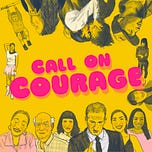

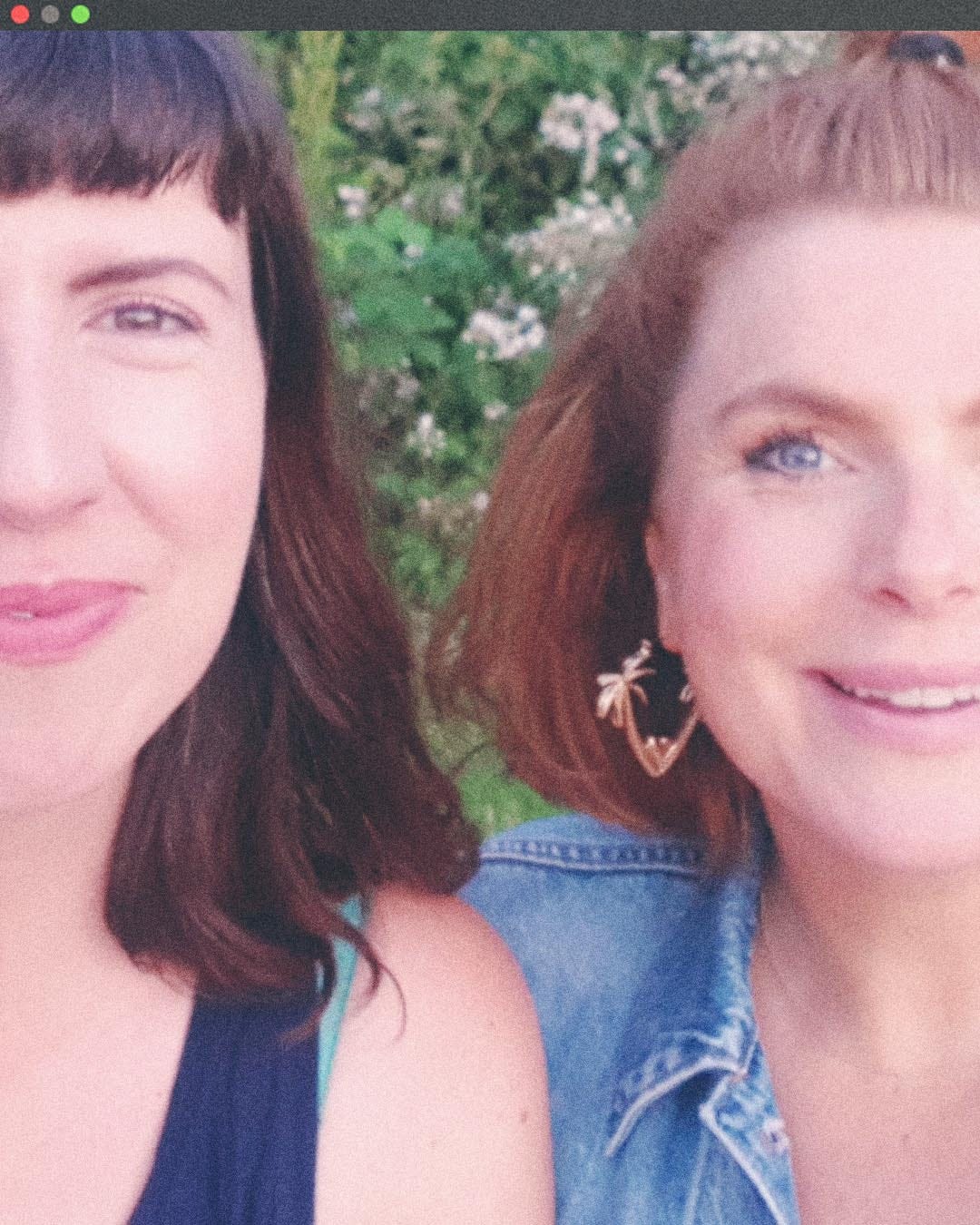


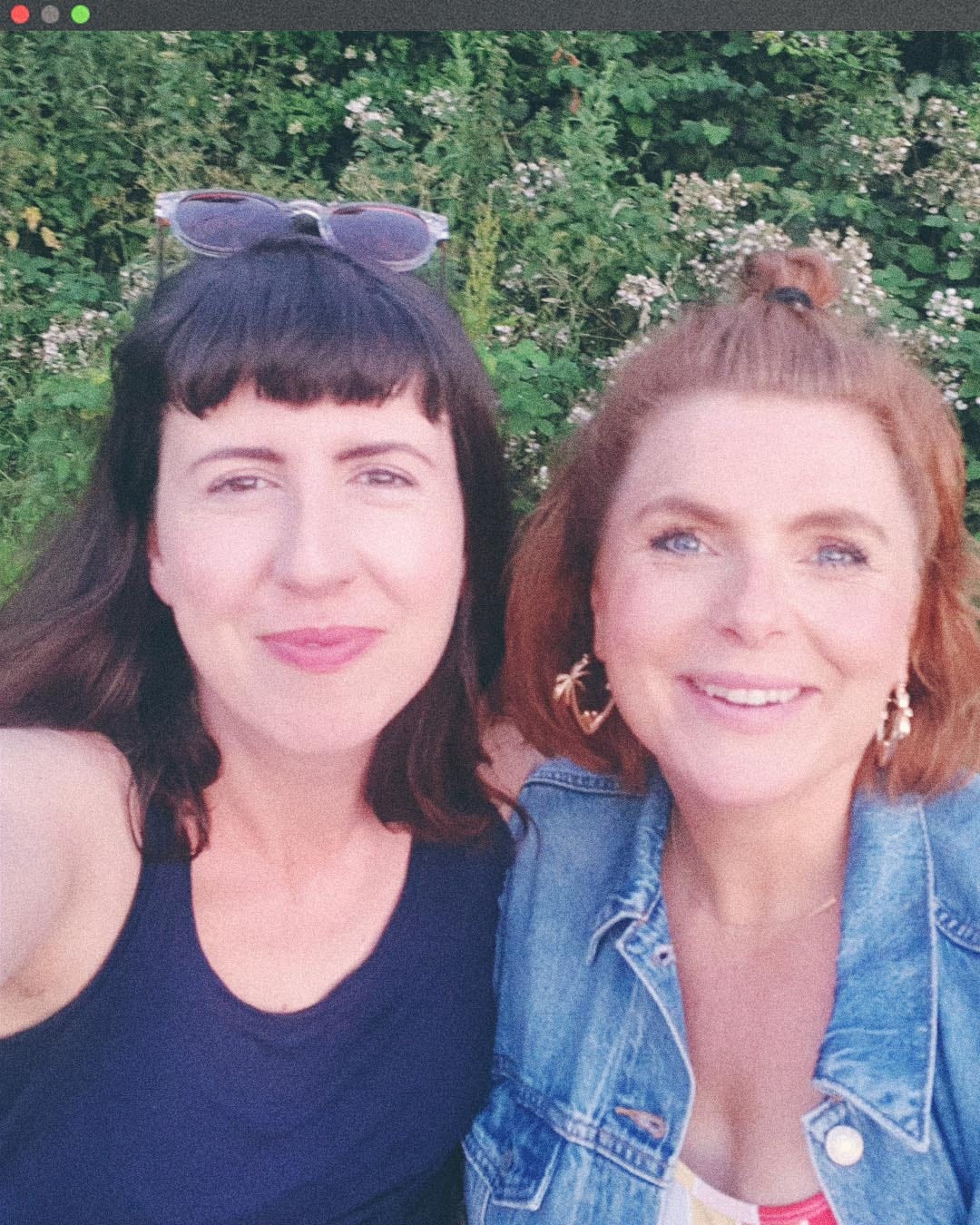






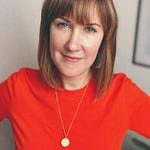
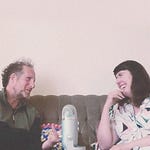
Share this post